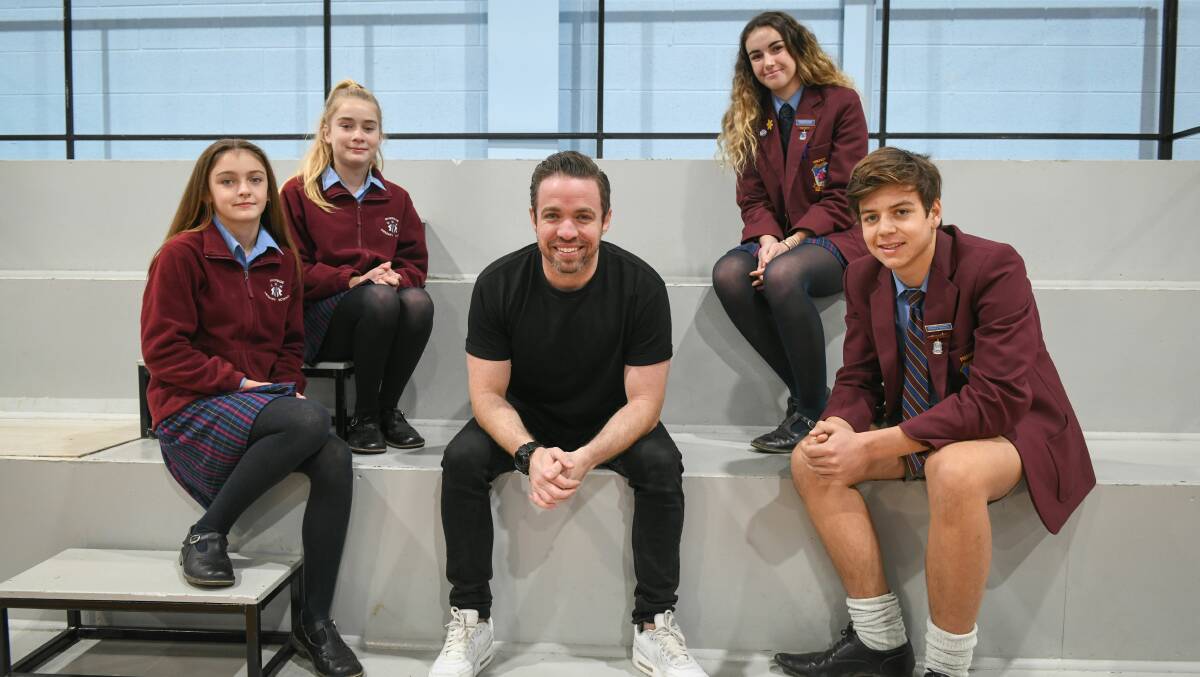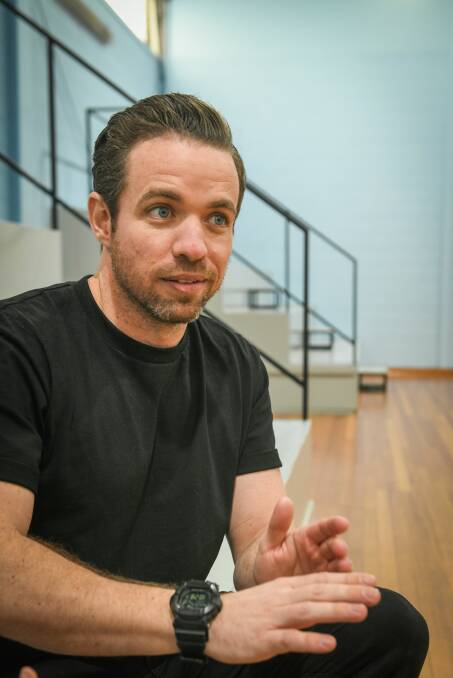
There is more to making friends than the likes on your Instagram posts but that doesn't mean you can't have a positive experience online.
Subscribe now for unlimited access.
or signup to continue reading
Meaningful relationships and a positive digital footprint was the theme of Sydney motivational speaker Jonny Shannon's recent tour to Northern Tasmanian schools, including Riverside high and primary schools.
Mr Shannon who gives talks to students from all grade groups across Australia and New Zealand was at Riverside High School on Thursday following sessions at Riverside Primary School, Trevallyn Primary School, West Launceston Primary School and an adult session on Wednesday.
"It's all about educating young people that they can have a positive reputation and social experience online," he said.
IN OTHER NEWS:
Mr Shannon said young people often struggled with bullying and mental health and the rise of the internet and social media had played a role in that spike.
"Young people often don't understand, but there have been studies to show that the average person only has about five close friends; more often than not it's about three," he said.
"If you have about one to three you're doing OK, but they are always caught up in how many friends they have online."
Mr Shannon's visit was coordinated by the Riverside cluster of schools as part of an ongoing wellbeing project supported by the Education Department.

The schools received a $20,000 grant to bring their project to live, with the first stage to engage a national speaker such as Mr Shannon.
Mr Shannon said he had been delivering talks for more than 10 years and he found Tasmanian and Queensland students the best to talk it.
He said Tasmanian and Queensland students felt "more grounded" and were less stressed than their big-city counterparts.
However, he said largely, young people were receptive to the messages he was sending.
"I think if young people can see your intentions then you've won their hearts over pretty easy," he said.
Mr Shannon said one of the surprising things to come out of his talks was that a lot of the time young people in Australia and New Zealand didn't understand that we had a culture of affectionately putting people down.
"We always think that we're having a laugh but you don't know how the other person will take it," he said.
Young men, in particular, did not often connect what they say as bullying, but it could be taken that way.
He said he offered the HALT approach for young people to use before they engaged in bullying behaviour or retaliated to what was said online.
"Young people often don't understand, but there have been studies to show that the average person only has about five close friends; more often than not it's about three. If you have about one to three you're doing OK, but they are always caught up in how many friends they have online.
- Youth cyberbullying coach Jonny Shannon
"Am I hungry, angry, lonely or tired? I ask people to always ask themselves that before they respond to any posts," he said.
Young people need to be more aware of their digital footprint because of their future employment opportunities - which was part of the reason Mr Shannon said he started doing the talks.
"It was the message that I wished I'd had when I was younger."
Mr Shannon said he had been quite lucky to have a reasonably good digital footprint but it was more to do with luck and not any enlightenment on his part.
He said he thought promoting positive messages and teaching young people to navigate their online socials lives was much easier than telling them they couldn't access it at all.
The visit was part of an overall cyberbullying and wellness push by the cluster of schools that aims to provide students with the opportunity to engage with an expert on the subject and help them to understand strategies to deal with bullying. The first stage of the project was to engage Mr Shannon to visit the cluster and for him to also host a parent information evening.
More than 100 parents attended the evening, which was held at the Tailrace on Wednesday night. After the visit the students will work on developing consistent messages and strategies within their schools and come together in a cluster action group to put in place some student-led actions to combat bullying in the community.
While you're with us, did you know you can now sign up to receive breaking news updates direct to your inbox? Sign up here.














